The Dali Oberon 5 loudspeakers; Oberon Kenobi! by David Abramson
 Denied but undeterred…
Denied but undeterred…
Over the years no one at Dali (short for Danish Audio Loudspeaker Industries, a company founded by Peter Lyngdorf in 1983) has responded to a single request from me to review their speakers. Actually, I’ve tried multiple times and always gotten the same succinct, well-written reply; none. It’s the same one I used to get from Mark Levinson and Dave Wilson. [N.B.: Since this review was published I have been contacted by the good folks at Dali and have been informed I may have had erroneous contact information and should have reached out directly to US distributor Lenbrook rather than to the company itself. I apologized to them for my misunderstanding and the correct contact information is provided for you below. I am told if you email them there, they are very responsive and you will definitely get a reply! Please enjoy the content of the review with this important correction in mind. Mea culpa!]. One day not long ago, after reading a particularly glowing Wallofsound.ca review of one of their floor standers, the affable, affordable Oberon 5, I began alternately musing and stewing. I hatched a plan to exact ultimate and brutal revenge: I would buy a pair! (Twice actually. The girlfriend ultimately scorned the tres–modern aesthetic of the gray grilles on the white speakers so I exchanged for all black).
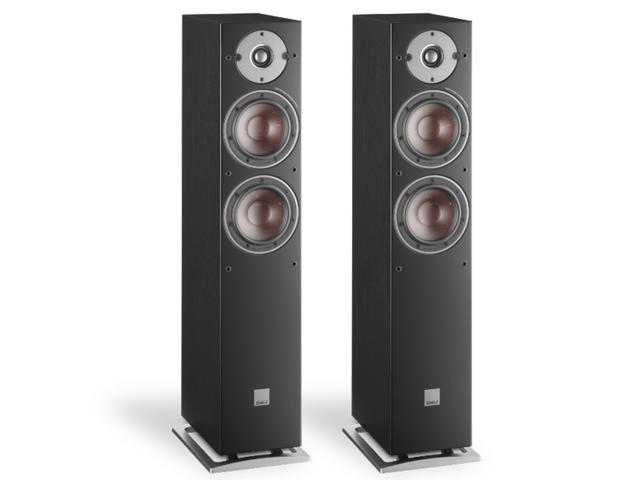
Vengeance is mine!!
For 1199.00 a pair. Don’t worry, it’s not real money; I used a credit card. Four days later the large-ish cardboard box arrived and I opened it to find my first pair ‘o Dalis; two slender white speaker boxes materially intact despite making the several state journey with their ends wrapped in that super el-cheapie styrofoam that fractures when you grab it.
‘This does not bode well,’ I thought (in italics to myself). Dali’s HFD (Head of Foam Design) needs a talking to here. Ahhhh… I know; I’ll email them about it. In any case, the cheap packing materials did not inspire confidence. It got worse. There was plastic-y looking ‘risers/stands’ (which may actually be aluminum?) that came screwed to each speaker’s base. The World’s Tiniest Spikes (also included) are to be screwed into these. I used an audiophile microscope mounted atop a high-end isolation platform specially designed for the purpose.

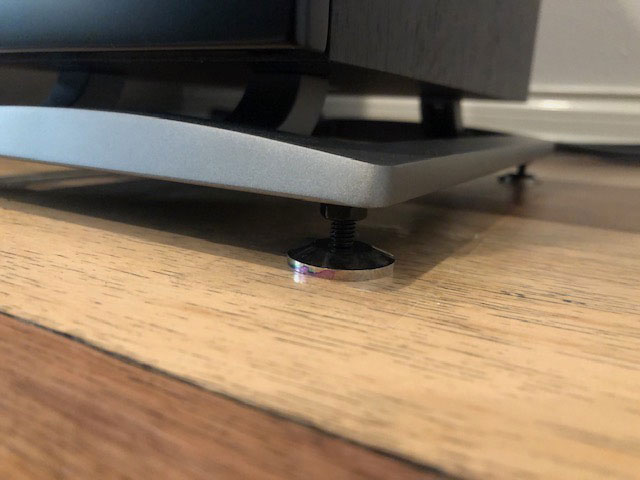

As I lifted the speakers from their packaging I tried to keep a calm head and a steady hand, but I couldn’t help but think I just paid full retail for a poorly packed cheaply made pair of likely over-hyped tiny boxes with a plastic-y base all in the service of a wounded ego. Then I immediately thought “Pah! Humans have done far worse in the service of ego” and it calmed me. Se la vie.
Plopping them down haphazardly and connecting them up and next to my hand-made aged Italian oak Xavian Perla Exclusivas (equally beloved of ‘Wall of Sound’) certainly didn’t convince me the Dalis would be anything to text home about. Indeed, when I first played them connected up to my Aqua La Scala Mk. 2 Optologic DAC and Lejonklou Boazu integrated amp streaming Quobuz and Tidal from my Mac mini via Audirvana, my heart sank a wee bit. I searched out the return policy and thought ‘yeah; definitely not gonna need a month or two to decide. That’s for sure.’ Like their email responses, the manual doesn’t say much, but it did say that due to their designed-in wide dispersion, don’t toe them in and that a 100-hour run-in was recommended. “Might as well give ‘em the benefit of the (considerable) mounting doubt” I figured. Incidentally, in my experience, the break-in period for speakers varies a good deal based on the volume you play them at. If you play at low volumes (and I do) it sometimes takes even longer than the manufacturer recommends, of course. In any case, some twenty or twenty-five hours of musical break-in later, I began collapsing their box in preparation for long term storage under the bed.
Help me, Oberon!!
If you’re like me, (and who isn’t?), you might feel iffy about these speakers and regret their purchase for maybe the first day or two you play music on them. There’s some flashes of promise, but they’re a bit uptight. Not much bass. You might even begin thinking British reviewers (and Wall of Sounders) hand out five stars in return for free product and ad revenue and you’ll regret forking over 1199.00 (in credit) based on what some random ‘other people’ said on the interwebs.
 Then there will come a time; a moment at first, maybe when you’re making eggs with music on in the background, and you’ll do a double-take and think ‘hmmm… they didn’t have this kind of bass last night…’ And then, if you’re anything like me, you’ll start being gently drawn to sit before them, maybe off to one side at first, and you’ll think… ‘hmm… something definitely very good starting to go on here, cheap packing materials or no.’ You notice their staging opening up a bit to the sides and behind them. You start playing a bit with their positioning and get them roughly equidistant from your ears with their backs about 15 to 16” from the front wall and with just a few degrees of toe-in. You move them closer to one another than the usual 7.5 feet or so you like speakers to be and you get their inner sidewalls maybe 6 to 6.5 feet apart or so. (Ultimately they do seem to like being closer to one another, the two of them, than other speakers I own).
Then there will come a time; a moment at first, maybe when you’re making eggs with music on in the background, and you’ll do a double-take and think ‘hmmm… they didn’t have this kind of bass last night…’ And then, if you’re anything like me, you’ll start being gently drawn to sit before them, maybe off to one side at first, and you’ll think… ‘hmm… something definitely very good starting to go on here, cheap packing materials or no.’ You notice their staging opening up a bit to the sides and behind them. You start playing a bit with their positioning and get them roughly equidistant from your ears with their backs about 15 to 16” from the front wall and with just a few degrees of toe-in. You move them closer to one another than the usual 7.5 feet or so you like speakers to be and you get their inner sidewalls maybe 6 to 6.5 feet apart or so. (Ultimately they do seem to like being closer to one another, the two of them, than other speakers I own).And then, if you’re like me, you dwell there a bit, as if caught in their tractor beam. You’re at the beginnings of amazement at what this stupid little pair of boxes is doing with a soundstage, with PRaT, and especially with voices. Heck, at this point you might even be given to a cautious Borat-trademarked ‘Vehhhhhh niiiice!!!” At least I was. And if like me, a couple of days later you happen to be playing James Blake’s introspective ambient acoustic album ‘The Colour in Anything’ at the time, you might also say something like ‘oh my lord; some of my expensive speakers can’t quite do voices like this! And the staging is just… just… now just what the earthly @&$&@ is going on here!!?’
Then you’ll start turning it up and a moody brooding Blake will stand smack dab in front of your room performing and drum-tight bass with zero overhang (a claimed 3dB down at 39Hz) will shake your (smallish) room on tracks like ‘I need a forest fire’ and you’ll start questioning why high-end audio gear has to be so unearthly expensive what with sound like this available for 1199.00 a pair. And then you’ll wonder about economies of scale and income inequality and Jeff Bezos and Bernie Sanders and his mittens whether money for ten thousand dollar speakers couldn’t be better earmarked for charity and why 300 million dollar yachts are a thing and so on (Or maybe that’s just me?). And you’re wondering all this because you’ll come to realize that despite the el-cheapo styrofoam and the plastic-y (aluminum?) bases and their tiny stature and the failure of Dali brass over the years to return even one single G-damned email(!), these seem after all to be doing pretty much almost exactly what your current much more expensive speakers do and for relative pennies on the dollar! They’re just smaller. A lot smaller. (Unless your current speakers are Harbeth P3’s or Neat Iotas, of course).
And then you’ll get lost in the music. And then, as if they know they’re about to become a reviewers’ cliché, your partner will come confirm what you’re hearing and they’ll ask you to play 80’s music you don’t like and you’ll suffer through it and then you’ll know you’re not delusional and you’ll also start to come round to the idea that you love run-on sentences and are in no way shape or form returning these improbable little (now black) boxes !! (Unless he/she hates the color).
Bowers and Wilkins v. Oberon Kenobi
‘But wait’, you think. ‘Budget speakers are really really good these days. Everyone on youtube says so! So what would happen if they were to go head to head with another budget assassin like, say, a five-star special forces high-class speaker darling like the new B&W 606 S2 Anniversary!? Then what!?’
 Well if you hear it like I did, the Bowers and Wilkins, a fantastic musical communicator in its own right, is a bit warmer overall, though immediately there is less ‘silence between notes; less mechanical ‘quietude,’ if you will. Think of maybe the blacks of an LCD TV versus a newer OLED TV. That’s exactly it.
Well if you hear it like I did, the Bowers and Wilkins, a fantastic musical communicator in its own right, is a bit warmer overall, though immediately there is less ‘silence between notes; less mechanical ‘quietude,’ if you will. Think of maybe the blacks of an LCD TV versus a newer OLED TV. That’s exactly it.It was apparent very early too that the Dali had the edge with instrumental texture, separation, micro-dynamics, and pace. The B &W countered with a beautifully balanced tonal response and perhaps even more scale, along with a meatier (though less clean) mid-bass, but the string textures and in-between silences on Diana Krall’s (I know and I’m sorry) ‘Autumn in New York’ from ‘This Dream of You’ made for more heartstring tug with the Dalis.
Stardusty pieces like this were just a bit more spellbinding and the next track, the upbeat ‘Almost Like Being In Love’, seemed pacier/more rhythmic; as if the music at every inflection point accelerated then stopped quicker. Essentially, I came to feel the Oberon 5 was not maybe as top-to-bottom balanced of a speaker sonically but was the overall more involving music maker: the more emotional of the two. It was less ‘slick’ and more raw; more heart-on-sleeve.
You get the sense more so with the Dali that you’re watching a performance happen in real-time. Sure there’s the strikingly palpable midrange neither too chesty nor too thin, but I came to feel this ‘they are performing live’ thing was equally down to its perceived ‘blacker background’ (it was better able to show the impressive quietude of my Lejonklou integrated) in conjunction with the Oberon 5’s special way with micro-dynamics. Music through it somehow felt a bit more charged and spontaneous; a little less canned. Per Dali, the cones in the Oberon 5 are wood fiber, or more properly, cones made of a blend of fine-grain paper pulp, reinforced with wood fiber. They also apparently suspend those natural woody cones in soft, floppy rubber surrounds which allow the magnets to more easily muscle the slightest in and out movement of the lightweight hair-trigger cone.
The tweeter is definitely larger than one usually encounters in a speaker of this size or design and this purportedly allows it to move more air with less voice coil motion, permitting more of a sense of effortlessness.

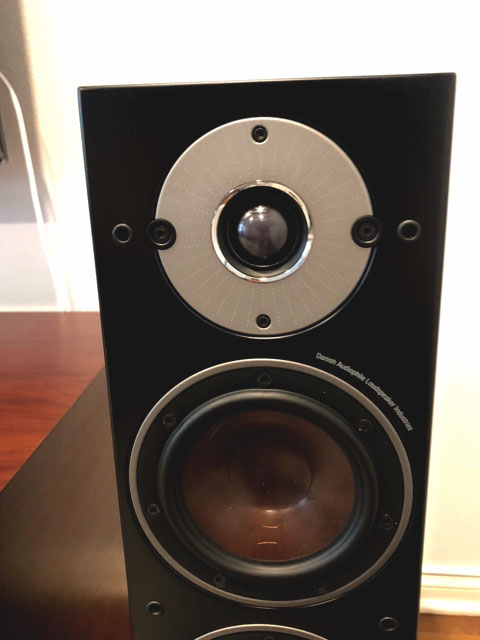
 Of note, the Oberon’s sound better (more balanced tonally) with the grilles on and were apparently designed to be listened to this way. They sound a bit thinner and brighter to my ear without the grilles (though they look cool!). Speaking of tweeting and tweeter construction, the high-tech double-chamber-backed aluminum dome of the Bowers and Wilkins gives it a beautifully extended and detailed top end. However, if I’m nit-picking, I thought the B&W had at times an ever-so-slightly metallic sheen with certain piano notes and high strings that (very) gently betrayed the (admittedly superb) tweeter’s material construction.
Of note, the Oberon’s sound better (more balanced tonally) with the grilles on and were apparently designed to be listened to this way. They sound a bit thinner and brighter to my ear without the grilles (though they look cool!). Speaking of tweeting and tweeter construction, the high-tech double-chamber-backed aluminum dome of the Bowers and Wilkins gives it a beautifully extended and detailed top end. However, if I’m nit-picking, I thought the B&W had at times an ever-so-slightly metallic sheen with certain piano notes and high strings that (very) gently betrayed the (admittedly superb) tweeter’s material construction.
The Dali’s highs were no less revealing but lacked any trace of trace metals.
The Dalis also scored slightly better at drivability; a relatively easier/flatter 6 Ohm load vs the B & W, which the specs say drops from an easy 8 Ohm load down to 3.7 Ohms in the bass. My 24 watt per channel Lejonklou amplifier just LOVED the little Dali’s and this benign impedance despite a similar (to the B&W) 88dB sensitivity may be why I found the Oberon 5 a bit more lively and engaging at my preferred low-ish to low-medium-ish levels. The 606 S2 Anniversary is no slouch down at low levels either and sounded great; one of the better low-level speakers I’ve heard! It just may just require a bit more potent amp at lowish volumes or even in general. (Fortunately, one is on the way for me to try, though didn’t make it in time for this review).
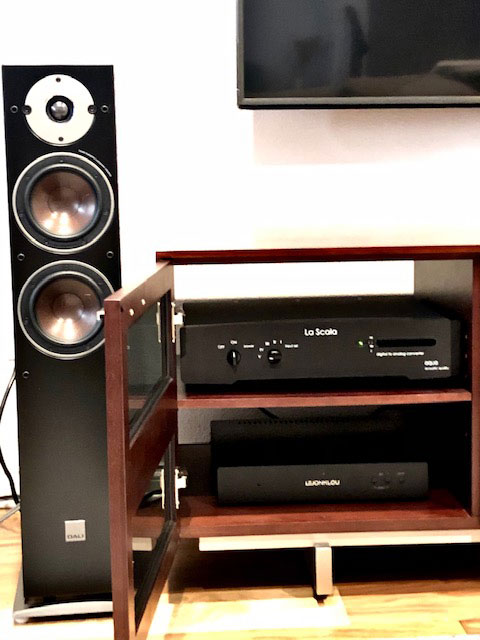
In any case, I’m not sure if impedance curves account for some percentage of why I found the Oberon 5 the more emotionally involving, lively, and expressive of the two loudspeakers at any level. As I say though, this difference was apparent to me on day one of my comparisons even just after hooking up the Oberons. Pre-broken-in while still ‘stiff’, they already had some of that musical gravitas; that ‘pull’ that great components have. ‘Sit down. Listen to this. You don’t need dinner right now.’
 To reiterate my point about their micro-dynamics, the little loud-then-soft pulses artists imbue phrases with, be it a human voice, piano, or what have you, these diminutive Dalis seem to speak a more nuanced language than many other speakers in my experience. Imagine a pianist playing a simple scale. If the artist gives some notes a bit more weight than others, even slightly more, the Dali will make that note-to-note difference clearer than will say, the B&W.
To reiterate my point about their micro-dynamics, the little loud-then-soft pulses artists imbue phrases with, be it a human voice, piano, or what have you, these diminutive Dalis seem to speak a more nuanced language than many other speakers in my experience. Imagine a pianist playing a simple scale. If the artist gives some notes a bit more weight than others, even slightly more, the Dali will make that note-to-note difference clearer than will say, the B&W.
Did I mention they also sound remarkably un-boxy? Slightly less boxy than the 606’s which themselves do about as amazing a job as can be done for the price of sounding like they are not boxes. But just as their tweeter occasionally faintly reveals itself to be metal, now and again their boxes leave faint traces of boxiness more so than do the Dali boxes. As touched on above, the mid to low bass definition on the Dali is also a touch cleaner. By my conjecture, the dual smaller (and possibly, therefore, quicker) woofers, (which together possess greater radiating area than the single high tech 6.5” B&W Continuum cone), set within a well-braced HDF/MDF blend cabinet make this possible. In absolute terms, the Dali’s also spec 10Hz lower as their 3dB down point (52Hz vs 39Hz) and they sound that way too.
Most especially, everything that’s supposed to sound fun and full ‘o PRaT on the Oberon 5 does! In fact, the Oberon 5 is the fastest and ‘funnest’ loudspeaker I’ve ever spent time with; rivaling my much loved Neat Mystiques and Critiques of yore, which themselves were perhaps not quite as tonally refined. A floor-standing Linn Kan anyone?
Downsides? Yeah. I wish they were about 6” taller and a few inches deeper and wider so I could have more of everything they do! Though maybe that would result in… less? Which is exactly why they’re the size they are? Have I learned nothing from Roadhouse!?
In sum and (a bit more) substance
I’m convinced. I agree with ‘Wall of Sound’ reviewer David Neice about the particular snowflake specialness of the Oberon 5’s (he loves them and bought them!) and also about Canadian singer Rose Cousins, whom his review introduced me to. She is fantastic; such a gorgeous pure voice and the Oberons beam her up, Scotty; right into my listening room. They are focused but not overly so and allow for a very naturally spacious instrumental stage.
And so, while not as invitingly warm tonally as my 2300.00 a pair Xavian Perla Esclusivas (and in some systems that may be a good thing!), or as well made, or as well packed or as well finished or as… you get the idea, Dali’s Oberon 5’s maybe at least their equal in that they may be tied with them for being the most musically satisfying speakers I’ve ever owned. I didn’t say they were ‘the best’ or the bass-iest, or ‘particularly incredible at…,” I said the most musically satisfying.
Now, after this appropriately rave review, maybe Dali brass will answer my emails. Or take my calls. Or take me out for a socially-distanced lunch? Maybe they’ll even send me free stuff!! Oh no; too late! I already bought the review pair full price! What can I say? The Oberon 5 is a small-ish supersonic superstar.
Seriously, in a small to medium-sized room, you need something else?
I bid you peace.

David Abramson
PS– my Naim is Oberon!
Just as I was about to submit this review, Naim’s Nait XS 3 integrated amp arrived; all 70 watts a side of it and lemme tell you it is a treat! The Oberon 5’s just love the additional power, sounding punchier and ballsier at lower levels than with my 24 watt Lejonklou reference amp. It’s so good I may have to review this superb amp separately, but suffice it to say it is an incredibly synergistic match with Oberons along the lines of the Wells Majestic/Tekton Lore Ref pairing and the wonderful Lejonklou/Xavian Perla Esclusiva pairing. That first night I was up wayyyy past bedtime with the XS3/Dali system listening! With a great front end like an Aqua DAC or a KTE May, the Nait XS 3/Oberon 5 pairing represents among the most musically potent smaller systems I’ve heard in all my years of hearing systems! Just exquisite with every genre I listened to from classical to gospel. Stay tuned. More to come…
|
|
|
|
Frequency Range (+/-3 dB) [Hz]
|
39 – 26,000
|
|
Sensitivity (2.83 V/1m) [dB]
|
88
|
|
Nominal Impedance [Ohms]
|
6
|
|
Maximum SPL [dB]
|
108
|
|
Recommended Amplifier Power [W]
|
30 – 150
|
|
Crossover Frequency [Hz]
|
2,400
|
|
Crossover Principle
|
2-way
|
|
High frequency driver, Quantity
|
1 x 29 mm
|
|
High frequency driver, Diaphragm type
|
Soft Textile Dome
|
|
Low frequency driver, Quantity
|
2 X 5.25″
|
|
Low frequency driver, Diaphragm type
|
Wood Fiber Cone
|
|
Enclosure type
|
Bass Reflex
|
|
Bass Reflex Tuning Frequency [Hz]
|
43
|
|
Connection Input
|
Single Wire
|
|
Recommended Placement
|
Floor
|
|
Recommended Distance From Wall [cm]
|
15 – 80
|
|
Dimensions With Base (HxWxD) [mm]
|
830 x 162 x 283
|
|
Weight [kg]
|
10.8
|
|
Accessories Included
|
Manual
Rubber Feet
Spikes
Front Grille
|
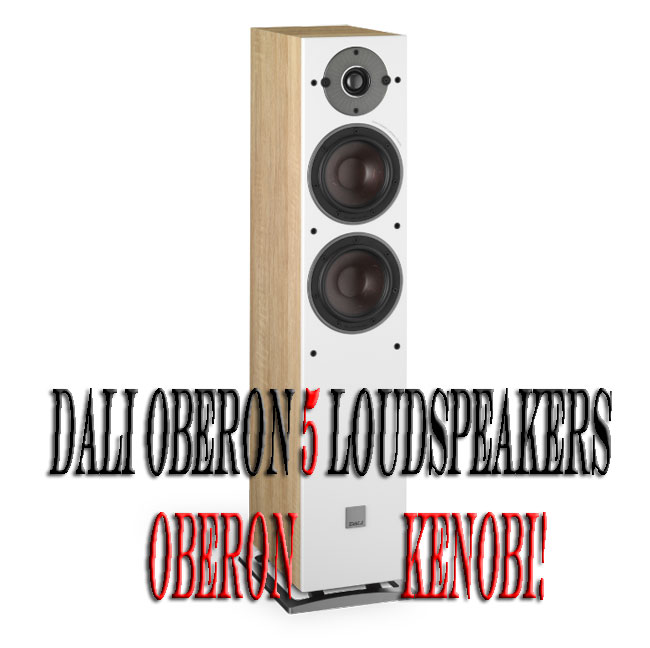
 Denied but undeterred…
Denied but undeterred…

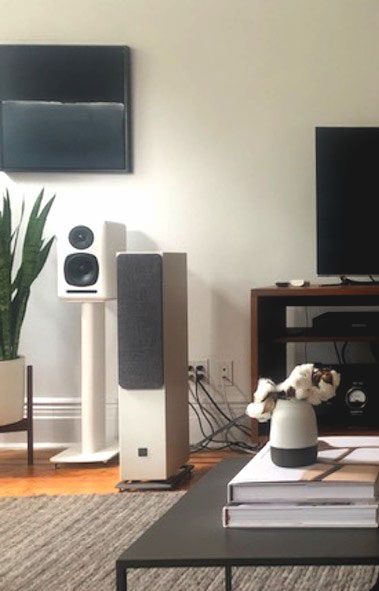



 Then there will come a time; a moment at first, maybe when you’re making eggs with music on in the background, and you’ll do a double-take and think ‘hmmm… they didn’t have this kind of bass last night…’ And then, if you’re anything like me, you’ll start being gently drawn to sit before them, maybe off to one side at first, and you’ll think… ‘hmm… something definitely very good starting to go on here, cheap packing materials or no.’ You notice their staging opening up a bit to the sides and behind them. You start playing a bit with their positioning and get them roughly equidistant from your ears with their backs about 15 to 16” from the front wall and with just a few degrees of toe-in. You move them closer to one another than the usual 7.5 feet or so you like speakers to be and you get their inner sidewalls maybe 6 to 6.5 feet apart or so. (Ultimately they do seem to like being closer to one another, the two of them, than other speakers I own).
Then there will come a time; a moment at first, maybe when you’re making eggs with music on in the background, and you’ll do a double-take and think ‘hmmm… they didn’t have this kind of bass last night…’ And then, if you’re anything like me, you’ll start being gently drawn to sit before them, maybe off to one side at first, and you’ll think… ‘hmm… something definitely very good starting to go on here, cheap packing materials or no.’ You notice their staging opening up a bit to the sides and behind them. You start playing a bit with their positioning and get them roughly equidistant from your ears with their backs about 15 to 16” from the front wall and with just a few degrees of toe-in. You move them closer to one another than the usual 7.5 feet or so you like speakers to be and you get their inner sidewalls maybe 6 to 6.5 feet apart or so. (Ultimately they do seem to like being closer to one another, the two of them, than other speakers I own).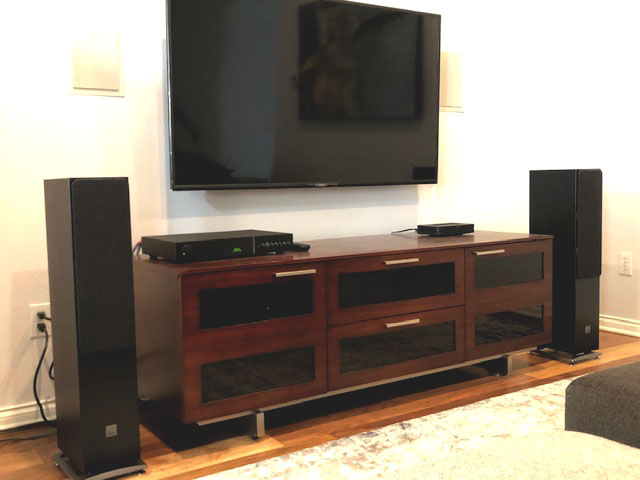

 Well if you hear it like I did, the Bowers and Wilkins, a fantastic musical communicator in its own right, is a bit warmer overall, though immediately there is less ‘silence between notes; less mechanical ‘quietude,’ if you will. Think of maybe the blacks of an LCD TV versus a newer OLED TV. That’s exactly it.
Well if you hear it like I did, the Bowers and Wilkins, a fantastic musical communicator in its own right, is a bit warmer overall, though immediately there is less ‘silence between notes; less mechanical ‘quietude,’ if you will. Think of maybe the blacks of an LCD TV versus a newer OLED TV. That’s exactly it.
 Of note, the Oberon’s sound better (more balanced tonally) with the grilles on and were apparently designed to be listened to this way. They sound a bit thinner and brighter to my ear without the grilles (though they look cool!). Speaking of tweeting and tweeter construction, the high-tech double-chamber-backed aluminum dome of the Bowers and Wilkins gives it a beautifully extended and detailed top end. However, if I’m nit-picking, I thought the B&W had at times an ever-so-slightly metallic sheen with certain piano notes and high strings that (very) gently betrayed the (admittedly superb) tweeter’s material construction.
Of note, the Oberon’s sound better (more balanced tonally) with the grilles on and were apparently designed to be listened to this way. They sound a bit thinner and brighter to my ear without the grilles (though they look cool!). Speaking of tweeting and tweeter construction, the high-tech double-chamber-backed aluminum dome of the Bowers and Wilkins gives it a beautifully extended and detailed top end. However, if I’m nit-picking, I thought the B&W had at times an ever-so-slightly metallic sheen with certain piano notes and high strings that (very) gently betrayed the (admittedly superb) tweeter’s material construction.

 To reiterate my point about their micro-dynamics, the little loud-then-soft pulses artists imbue phrases with, be it a human voice, piano, or what have you, these diminutive Dalis seem to speak a more nuanced language than many other speakers in my experience. Imagine a pianist playing a simple scale. If the artist gives some notes a bit more weight than others, even slightly more, the Dali will make that note-to-note difference clearer than will say, the B&W.
To reiterate my point about their micro-dynamics, the little loud-then-soft pulses artists imbue phrases with, be it a human voice, piano, or what have you, these diminutive Dalis seem to speak a more nuanced language than many other speakers in my experience. Imagine a pianist playing a simple scale. If the artist gives some notes a bit more weight than others, even slightly more, the Dali will make that note-to-note difference clearer than will say, the B&W. 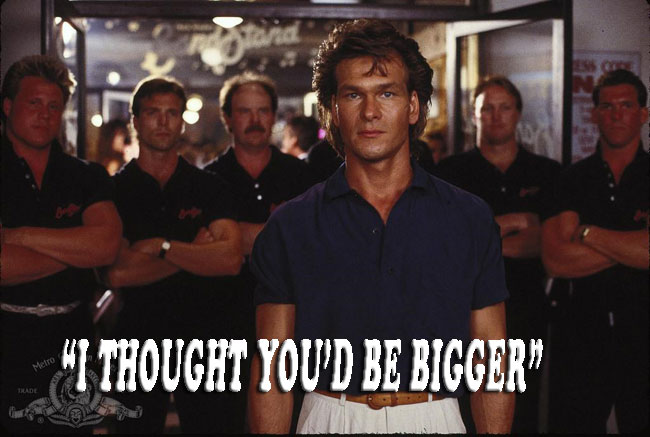






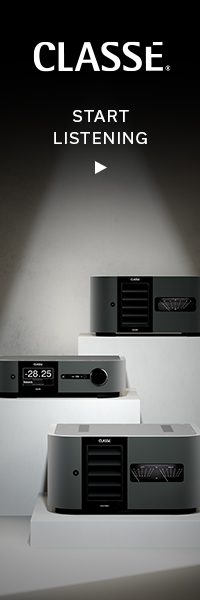
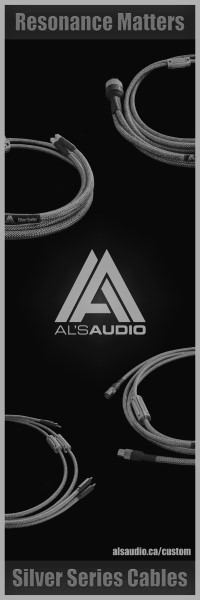
“and were apparently designed to be listened to this way”
No they are not designed to be listened in this way, this is a false statement which I keep seeing rolling and on other sites that review this speaker model.
I was curious to see and the opinion from Dali, because apart from all these reviews I read, I couldn’t find this statement anywhere at them, at Dali, so I asked them if what I keep heard was true.
You can find their answer below, with print screen
https://i.postimg.cc/PJCjpgKy/Untitled.jpg